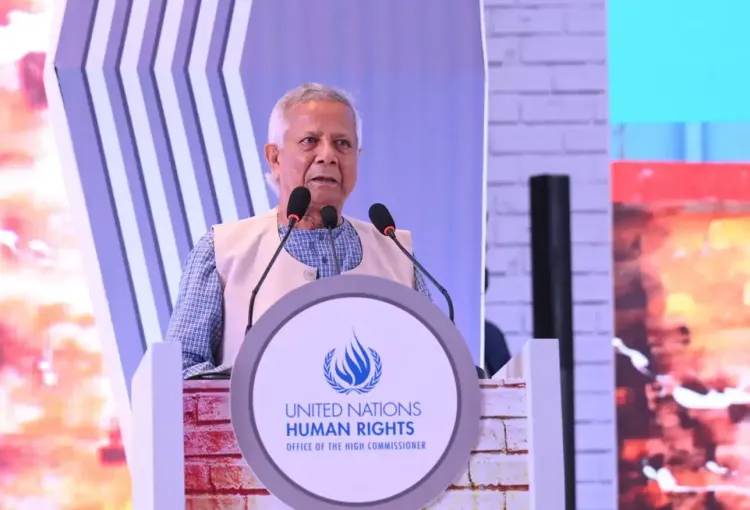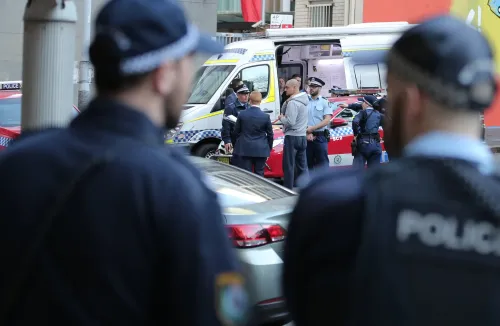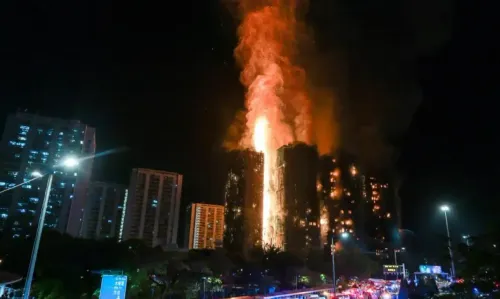Is Growing Anarchy in Bangladesh a Major Threat to Regional Peace and Security in South Asia?

Synopsis
Key Takeaways
- The human rights situation in Bangladesh is critically declining.
- There has been a notable increase in lynching incidents.
- Journalists and minority communities are facing severe repression.
- The formal judicial system is largely ineffective.
- The potential for increased violence poses risks to regional security.
New Delhi/Dhaka Aug 7 (NationPress) The human rights climate in Bangladesh is worsening as the country transitions into a state of chaos under the interim administration led by Chief Advisor Muhammad Yunus, according to a report released by the Rights and Risks Analysis Group (RRAG) on Thursday.
RRAG Director Suhas Chakma reported that from August 2024 to July 2025, at least 637 individuals, including 41 police officers, were allegedly lynched under the interim government, while 51 lynching fatalities were recorded during Sheikh Hasina's administration in 2023, marking a staggering increase of 1250 percent. Chakma cautioned that the state of anarchy in Bangladesh is likely to escalate in the upcoming months.
The report highlighted that over 516,327 people were implicated in criminal cases, including 79,491 named individuals and 436,836 unnamed individuals across approximately 1,567 cases. In addition, 878 journalists faced targeting, leading to 51 cases being filed, with 39 individuals arrested under the Cyber Security Act of 2023. Furthermore, 2,485 instances of violence against religious and ethnic minorities were noted under Yunus's leadership.
According to the findings, the formal judicial system has been effectively dismantled, with the ousting of 21 Supreme Court and High Court judges and the complete removal of all National Human Rights Commission (NHRC) members. The report concluded that the apparent disregard for human rights is evidenced by Yunus's failure to restore the NHRC after the dismissal of its members on November 7, 2024.
The Awami League and its affiliated groups, as well as indigenous communities in the Chittagong Hill Tracts (CHT) and Hindu minorities, are reportedly denied their rights to freedom of association and assembly under the Yunus administration.
Authorities have imposed restrictions on the Awami League and the Chhatra League, while indigenous communities faced violent reprisals from illegal settlers and the Bangladesh Army in Dighinala, Khagrachari Sadar, and Rangamati Sadar on September 19-20, 2024, for their involvement in the 'March For Identity' event on September 18 of the previous year, the RRAG report detailed.
Hindu priest Chinmoy Das has been charged with sedition and murder for facilitating a peaceful protest for Hindus in Chittagong last October and has been incarcerated since November 25, 2024.
The report further noted that reforms under the interim government are being utilized as a tool to maintain power and marginalize indigenous peoples and religious minorities. Notably, the Constitutional Reform Commission excluded representatives from these communities, and its recommendations suggested the elimination of secularism, thereby undermining the religious freedoms of minorities in the nation.
With the anarchy in Bangladesh anticipated to escalate in the lead-up to the promised elections, the report warns that this situation poses a significant threat to regional peace and security in South Asia.









